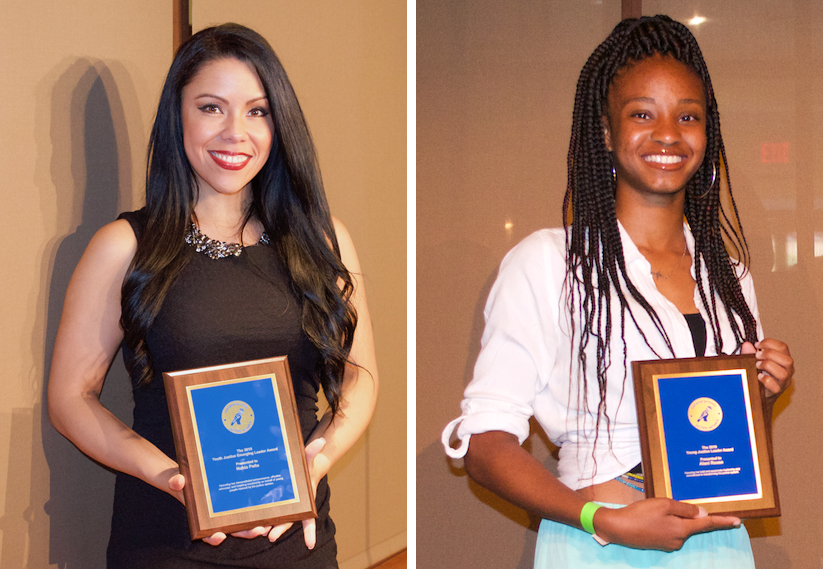Leaders. Advocates. Crusaders for juvenile justice. Two women, both intent on “changing the system,” have been honored by the National Juvenile Justice Network.
Utah attorney Nubia Peña has won the National Juvenile Justice Network’s (NJJN) 2019 Youth Justice Emerging Leader Award. Each year, the NJJN honors a person who is dedicated to reforming the youth justice system by advocating for the fair treatment of young people, promoting racial equity and actively working towards the use of community-based alternatives to incarcerating kids.
“My heart and passion has always been around prevention work,” Peña said. “Because when we think about changing the world to make it better, changing the system, challenging the systemic and institutional violence that has been historically ingrained in the way we manage the status quo … it lies in the hands of our babies.”
In an official statement, the NJJN says it chose Peña because of her “demonstrated commitment to ending the school-to-prison pipeline, being an active voice for court-involved youth, and working within the community to support kids at-risk of becoming involved with the justice system.”
Peña has dedicated her professional life to youth justice advocacy after working as a law enforcement victim’s advocate for survivors of domestic abuse, sexual assault and violent crimes. As she expanded her advocacy work to include racial and economic justice and immigration rights, Peña decided to enter law school and challenge policies and practices that she says are unjust.
“There was a lack of cultural understanding, there was a lot of victim blaming, a lot of things where I kept thinking this is an additional barrier to this person’s healing, this is an additional barrier to this person being able to obtain justice,” Peña said.
Her track record includes a push to end the school-to-prison pipeline. She implores educators to try to understand the source of a child’s behavior, rather than just labeling a student “bad” or “a problem.”
“Once we start putting those labels on the hearts of our children, they carry it on their backs and they walk around this world with their head bowed down, Peña said. “Instead of referring a child to law enforcement, create a type of space in which we nurture them. This is not a bad child, this is a harmed child, it is a hurting child. Use restorative practices that empower them to be seen as leaders, not as troublemakers. Then we’re able to disrupt this pipeline where our children are facing incarceration and are being pushed out of schools.”
The NJJN also honored a North Carolina college student as its 2019 Young Justice Leader award. Alani Rouse is a sophomore at Wake Technical Community College in Raleigh. The NJJN says she has shown “exemplary dedication to ensuring that the justice system treats all youth fairly and with dignity.”
Rouse said, “I had a hard time in school because I was never there, but often the punishment for not going to school or skipping class was to miss MORE school, which didn’t make sense to me.” She wants to make sure the consequences for troubled students actually matches their actions.
NJJN Executive Director Sarah Bryer commended Rouse’s commitment to this issue.
“She continues to inspire us with her ability to speak truth to power and advocate for young people in her community, many who are victims of the school-to-prison pipeline, receive discriminatory discipline or do not receive adequate support for mental health challenges,” said Bryer in an official statement.
When she was in high school, Rouse joined a youth steering committee for the NJJN, which put her in contact with students from other districts. She found disparities in the way the various districts handled school discipline. That difference left students in particular districts at a disadvantage. Rouse said she is working on a project that investigates that disadvantage and plans to bring the results to legislators.
Rouse said she’s seen schools discipline kids like criminals. “You weren’t allowed to talk, you had to eat at certain times, you could only go to the bathroom at certain times. Kids felt discarded at a certain point.”
Rouse is considering a career in law so she can continue to advocate and be a voice for vulnerable youth.
